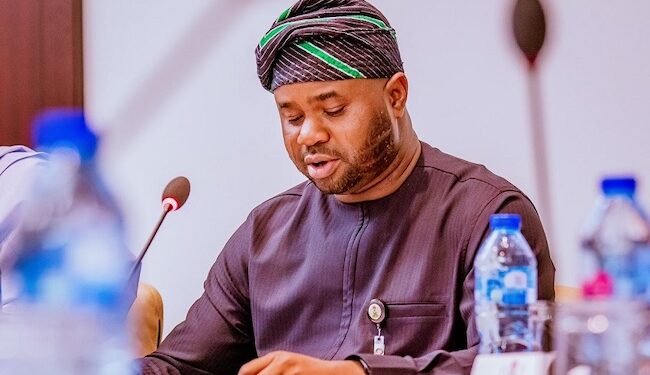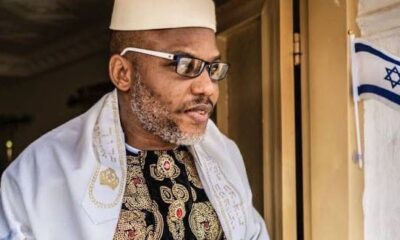Business
Why Nigeria Will Keep Borrowing Despite Revenues Soar – FIRS Reveals
Nigeria’s revenue has surged to N3.64 trillion in September 2025, but the Federal Inland Revenue Service (FIRS) says borrowing will remain part of government’s fiscal plan.

- Nigeria’s revenue has surged to N3.64 trillion in September 2025, but the Federal Inland Revenue Service (FIRS) says borrowing will remain part of government’s fiscal plan.
- FIRS Chairman, Zacch Adedeji, explained that loans are now focused on infrastructure and long-term growth, not recurrent spending, stressing that “borrowing is part of the economic ecosystem of a viable nation.”
Nigeria’s federal revenue has risen sharply in recent months, but borrowing will remain a deliberate part of the government’s fiscal strategy, according to the Chairman of the Federal Inland Revenue Service (FIRS), Zacch Adedeji.

Adedeji revealed that revenue collections grew by 411 per cent in 16 months, climbing from N711 billion in May 2023 to N3.64 trillion in September 2025. He highlighted major gains across non-oil, oil and customs revenues, with non-oil tax collections rising from N151 billion to over N1 trillion, and oil receipts climbing from N96 billion to N644 billion. Value Added Tax (VAT) also tripled to N723 billion, while customs revenue surged to N322 billion.
Speaking at a State House briefing, Adedeji attributed the revenue boom to reforms introduced under President Bola Tinubu’s administration, including streamlined tax systems, reduced burdens on SMEs, harmonised levies, and digital tools such as e-invoicing and data-driven audits that have closed leakages and broadened the tax net.
However, he insisted that despite the strong inflows, Nigeria will continue to borrow—but with a different focus. “Borrowing is not a problem, banks are part of our economic ecosystem. There is no country or individual in the world that survives based on its own income,” he explained.

He stressed that borrowing was no longer to cover salaries or recurrent expenditure but to finance infrastructure and productive investments. “So, you borrow to beat higher costs for the future, you borrow because of a matching concept to sustain continuity. When you borrow to do road infrastructure and you collect taxes from anybody using that road, they pay their fair share,” he said.
Adedeji added that borrowing is embedded in the national budget and is aligned with fiscal discipline: “When Mr. President said we have met our target or we are doing well in revenue, and they say why are we borrowing, is borrowing not part of the budget we submitted to the National Assembly? Are we borrowing outside what is approved?”
DON’T MISS: BREAKING: FG Suspends Controversial 4% import Duty Levy
President Tinubu, in his 2025 mid-year economic briefing, also reinforced this position, stating that domestic resource mobilisation remains the government’s anchor. “Our goal is to fund development from internally generated revenues and borrow only to support investments that can pay for themselves,” he said. He emphasised that borrowing within approved limits was necessary and legitimate, so long as it was sustainable and directed toward productive sectors.

Both Tinubu and Adedeji noted that the government has ended the practice of printing money through Ways and Means advances from the Central Bank, instead reclassifying them as federal debt and repaying them in order to stabilise inflation, exchange rates, and investor confidence.
Looking forward, FIRS announced plans for further reforms, including a presumptive tax regime for the informal sector, harmonisation of state-level levies, and progressive cuts in corporate tax rates to attract investment. Constitutional reforms are also underway to clarify revenue allocation between the federal and state governments under stronger fiscal federalism.























You must be logged in to post a comment Login